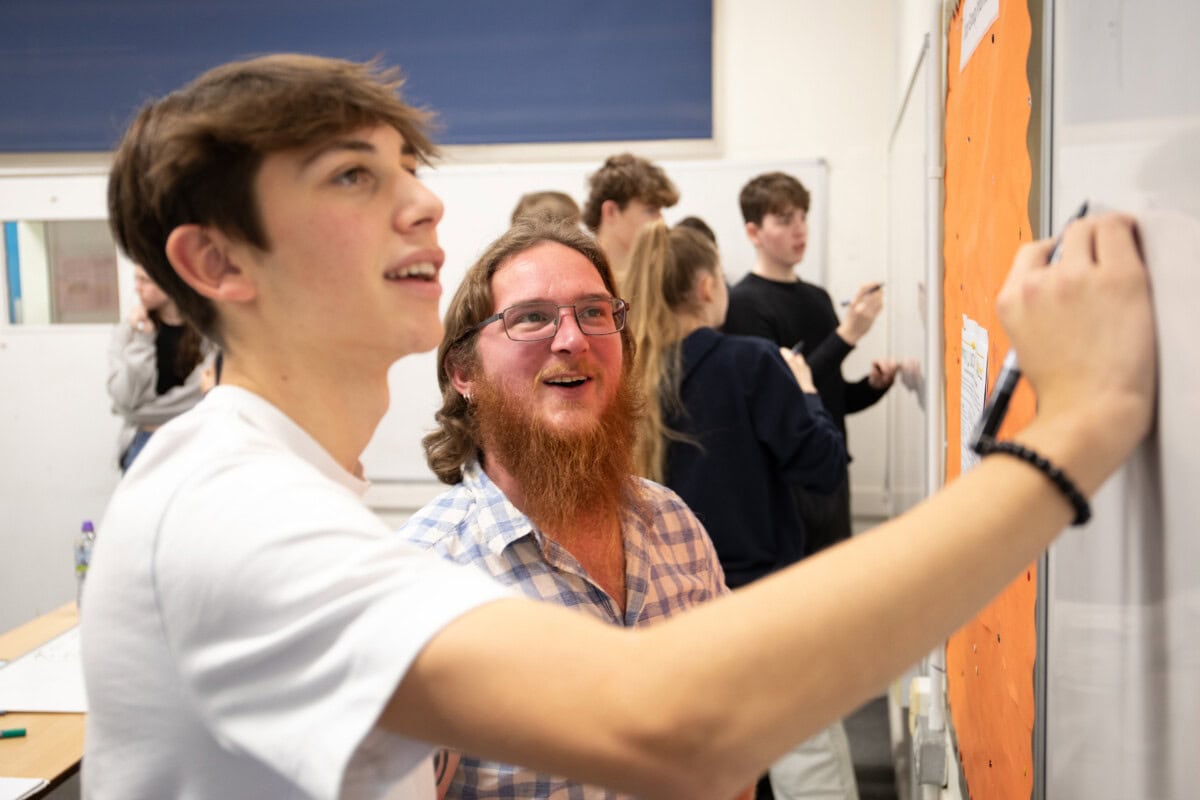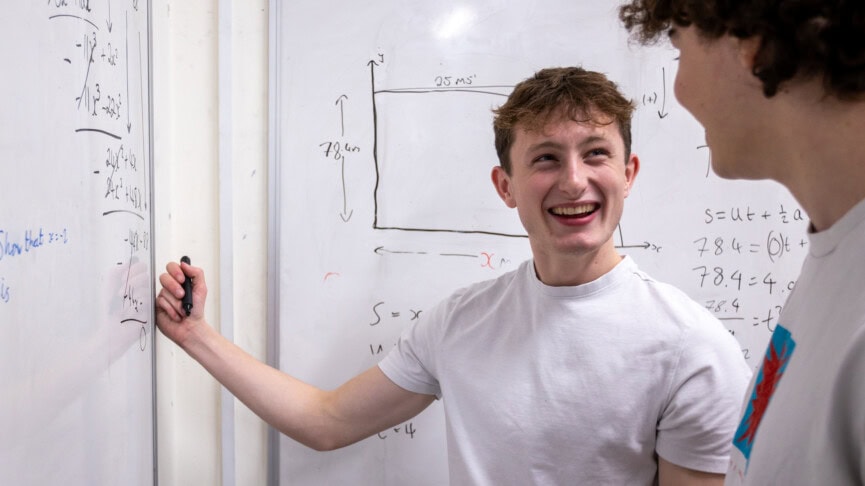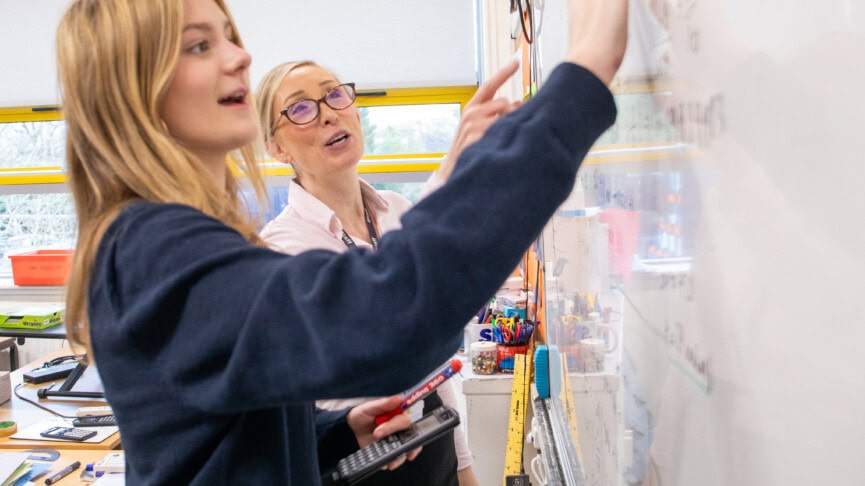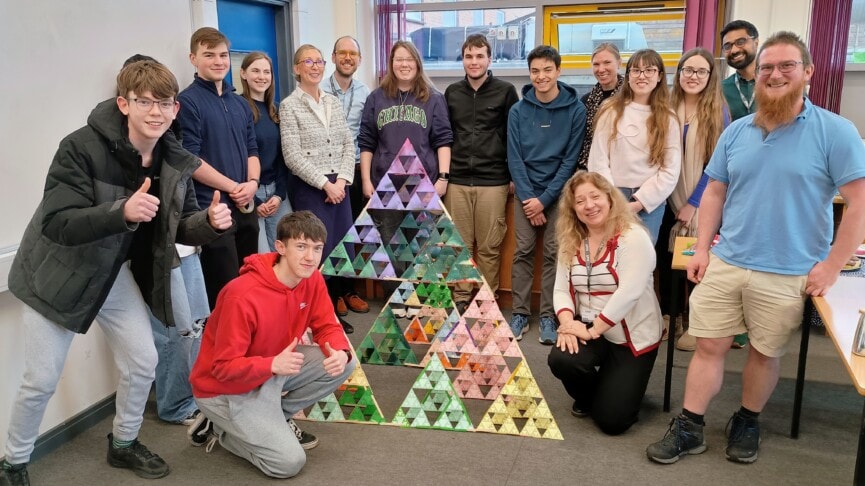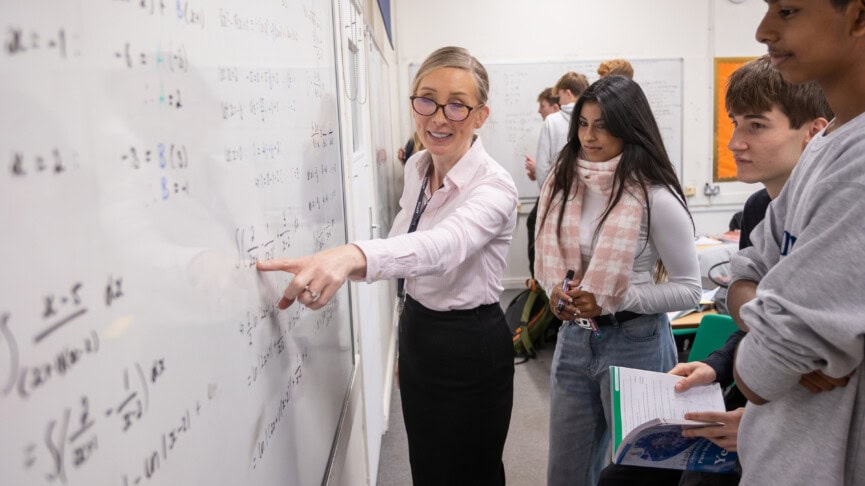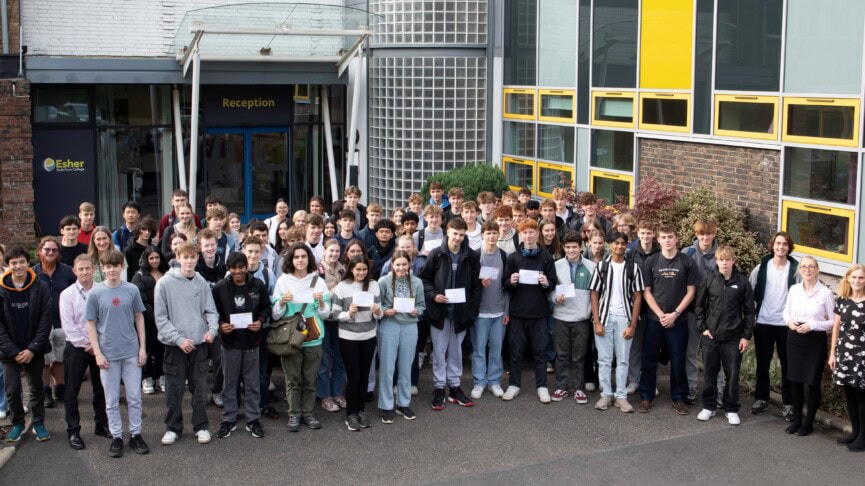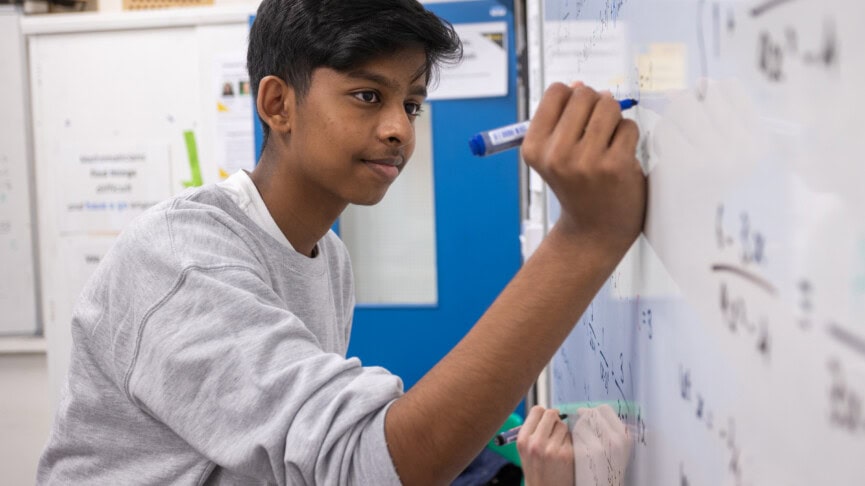Overview
Mathematics A Level builds on the skills and knowledge developed at GCSE level.
It emphasises how mathematical ideas are interconnected and how mathematics can be applied to model situations using algebra, to help make sense of data, to understand the physical world, and to solve problems in a variety of real-life contexts. It prepares students for further study and employment in a wide range of disciplines involving the use of mathematics.
A major part of the course is Pure Maths, which is the study of mathematical ideas and methods for their own sake and to give a ‘toolkit’ for solving mathematical problems. All Pure Maths is expressed in terms of algebra. Students will also study both Statistics and Mechanics as part of their A Level.
Statistics involves learning how to draw conclusions from data. It is very different from Statistics at GCSE and the focus is on probability and hypothesis testing. For example, looking at whether an apparent patterns in certain types of situations could be the result merely of chance and random variation, or whether the pattern in the data is unlikely to have arisen in this way.
Studying Mechanics allows us to understand the physical world and to work out how objects move when forces such as gravity act on them.
Entry Requirements
In addition to the College Entry Requirements, to qualify for this course you will also need to achieve a minimum of:’
- Grade 6 in GCSE Maths, and Grade 6 average prior attainment.
Course Details
In the first year you will cover topics in Pure Maths, Statistics and Mechanics. In Pure Maths you will study a wide range of topics including differentiation and trigonometry. In Statistics you will learn about sampling and probability and hypothesis testing, and in Mechanics you will learn about kinematics (displacement, velocity and acceleration).
In the second year you will develop your mathematical problem-solving skills and algebraic skills. You will also study the Pure Maths topics in greater depth. In Statistics you will learn about probability distributions and in Mechanics you will learn about moments and friction.
Assessment
Assessment is by three written exam papers. All three papers are calculator papers.
Subject Combinations
In order to enable progression to university courses with a high mathematical content, Mathematics A Level can be a particularly important complement to A levels in Physics and Chemistry, and also to A Levels in Economics and Biology.
However, Mathematics is an interesting, stimulating, and valuable subject in its own right, and compliments most subjects.
University Destinations
Mathematics A Level is a highly respected qualification, with 90% of our students progressing onto University.
Here are some typical university destinations that our Mathematics A Level students go on to. Click on a destination to see some examples of courses they have taken:

University of Leeds
Typical courses: Economics and Mathematics / International Business and Finance / History / Dental Surgery / Oral Science
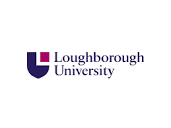
Loughborough University
Typical courses: Aeronautical Engineering / Economics Management / Geography with Economics / Art Foundation / Accounting and Financial Management (with placement yr) / Industrial Design (with placement year)
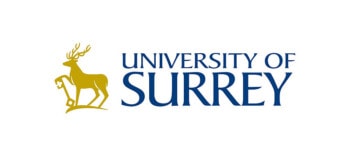
University of Surrey
Typical courses: Business Economics / Biomedical Science / Computer Science / Psychology with Foundation Year / Aerospace Engineering

University of Sussex
Typical courses: Economics / Finance and Technology (FinTech) / Mechanical Engineering / Automotive Engineering (with an industrial placement year) / Psychology / Medical Neuroscience
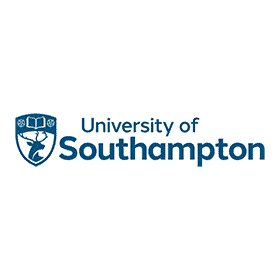
University of Southampton
Typical courses: Economics and Finance / Computer Science / Medicine-widening participation / Economics and Finance

The University of Sheffield
Typical courses: Economics and Modern Languages & Cultures / Biomedical Science / Maths with Spanish / Aerospace Engineering with a Year in Industry / Architecture

University of Birmingham
Typical courses: Physics and Astrophysics / Computer Science with an Industrial Year / Computer Science / Medicine (5 years)

The University of Manchester
Typical courses: Mathematics / Children’s Nursing / Mechanical Engineering with an Integrated Foundation Year / Architecture
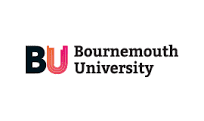
Bournemouth University
Typical courses: Computer Animation Technical Arts / Mechanical Engineering (Integrated Master’s) / Sport Management
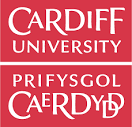
Cardiff University
Typical courses: Financial Mathematics with a Professional Placement Year / Music / Optometry
Careers
Mathematics A Level is required for most university courses in Mathematics, Physics, Chemistry (straight Chemistry degrees), Engineering, Architecture (many courses but not all), Economics (the more mathematical courses), Management Science (some courses) and Computer Science (but not IT more broadly).
Maths A Level provides a helpful background for the mathematical parts of university courses in Biological and Environmental Sciences, Business Studies (at least on some of the more mathematical courses) and Psychology (because of its statistics content). Students who have not taken Maths beyond GCSE often struggle with the mathematical parts of these courses.
The logical reasoning, problem-solving skills you learn while studying A Level Mathematics are highly valued by employers across many job sectors including education, engineering, finance, banking and accountancy, insurance, and also space science and astronomy.
FAQs
Is A Level Maths much harder than GCSE Maths?
Yes, there is a significant step up, but it is manageable if you come with the right mind set. Be ready for lots of algebra.
Do I have to work hard?
Yes! You will receive four time-tabled lessons a week and be set two homework pieces each week that can take up to four to five hours. The students who are most successful at Maths A’ Level are those who are ready to persevere when they find it hard.
Which aspects of GCSE Mathematics are important for the A Level Course?
Fluency in algebra is vital for success on this course. It is easy to underestimate this. Can you:
- Solve equations, including simultaneous and quadratic equations (factorising and the formula)?
- Rearrange formulae?
- Work with fractions and negative numbers without a calculator (absolutely essential)?
- Solve problems – for example using trigonometry?
- Draw graphs of functions from their equations without calculating values point by point?
What support is there at Esher?
There are lots of things we can do to help if you are struggling. Remember we are a department of highly experienced A’ Level teachers, all with a strong maths background, so we can offer you an excellent level of teaching and tuition.
We also run daily Maths clinics, every lunchtime. The purpose of these is to provide a place for students to discuss problems with homework and get some individual help.
If you are really struggling, we do offer an extra timetabled lesson to go over topics in smaller groups.
What enrichment activities and trips are there?
In the final week of your first year, the College holds a Wider Skills Week dedicated to enrichment activities. The mathematics department offers students opportunities to explore maths in the real world, such as: cryptography with a visit to Bletchley Park; the maths of planets and galaxies with a visit to the Royal Observatory in Greenwich; and web design and coding by learning HTML, CSS and JavaScript. All the activities give students the opportunity to explore maths-related university courses and STEM careers.
Throughout the year, students participate in a variety of mathematical challenges including the UKMT Senior Challenges and the British Mathematical Olympiad, often gaining an impressive haul of awards.
